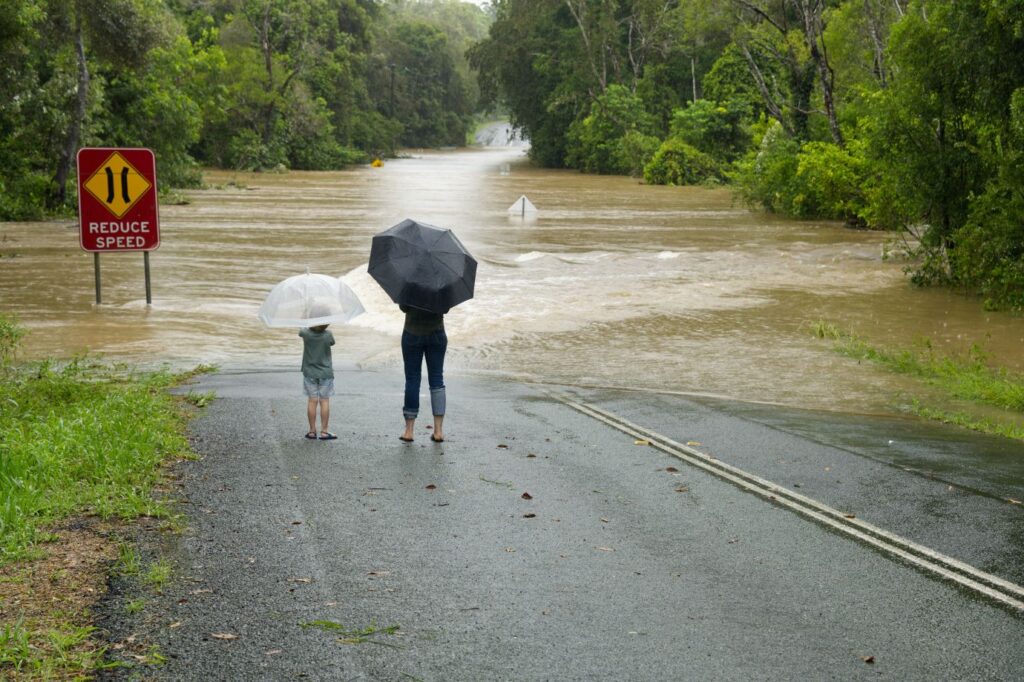When extreme weather disasters hit communities, it’s often the stories of dramatic rescues—generally undertaken by male volunteers—that make headlines.
But new research released this week has unveiled a different kind of story: the power of women’s leadership in sustaining recovery efforts across homes, community halls and online networks during disasters.
The study, published in the journal Women’s Health, specifically brings attention to the pivotal role women have played in the recovery from the floods in the Northern Rivers region of New South Wales in 2022.
“While the media spotlight was on the ‘tinny army’, women were coordinating food relief, managing donation hubs, organising volunteers, and providing emotional support to neighbours and strangers alike,” said lead author Dr Rebecca McNaught.
“They were doing this while also caring for families, managing their own flood impacts, and often without any formal recognition or support.”
The study, titled Governance, collaboration and community organising in rural Australia: A case study of women’s experiences and contributions to community health and well-being in the Northern Rivers, analyses transcripts from the NSW government’s flood response inquiry, as well as interviews with community members, government and non-profit representatives.
The study was conducted by researchers from University Centre for Rural Health in collaboration with Gender and Disaster Australia and the University of Melbourne.
It highlights how we consistently undervalue women’s contributions in disasters responses and how women community organisers were often excluded from formal decision-making. Women also experienced burnout, stress and negative health impacts, the study shows.
“This is not just a Northern Rivers issue – it’s a national one,” said co-author Loriana Bethune from Gender and Disaster Australia.
“Across Australia, we see the same pattern: women step up in times of crisis, but their leadership is unpaid, unsupported, and unacknowledged. This research is a call to action to change that.”
“This research shows that if we want resilient communities, we need to start by recognising and resourcing the people already doing the work – and that means local women.”
The researchers explain that what occurred in the Northern Rivers in the 2022 floods can be a lesson for other regional and rural communities as climate disasters become more common.
“We need to build disaster systems that recognise and support the leadership that already exists in communities – especially the leadership of women,” said Dr McNaught. “That means funding grassroots initiatives, including women in planning and governance, and valuing their work as essential to recovery.”

